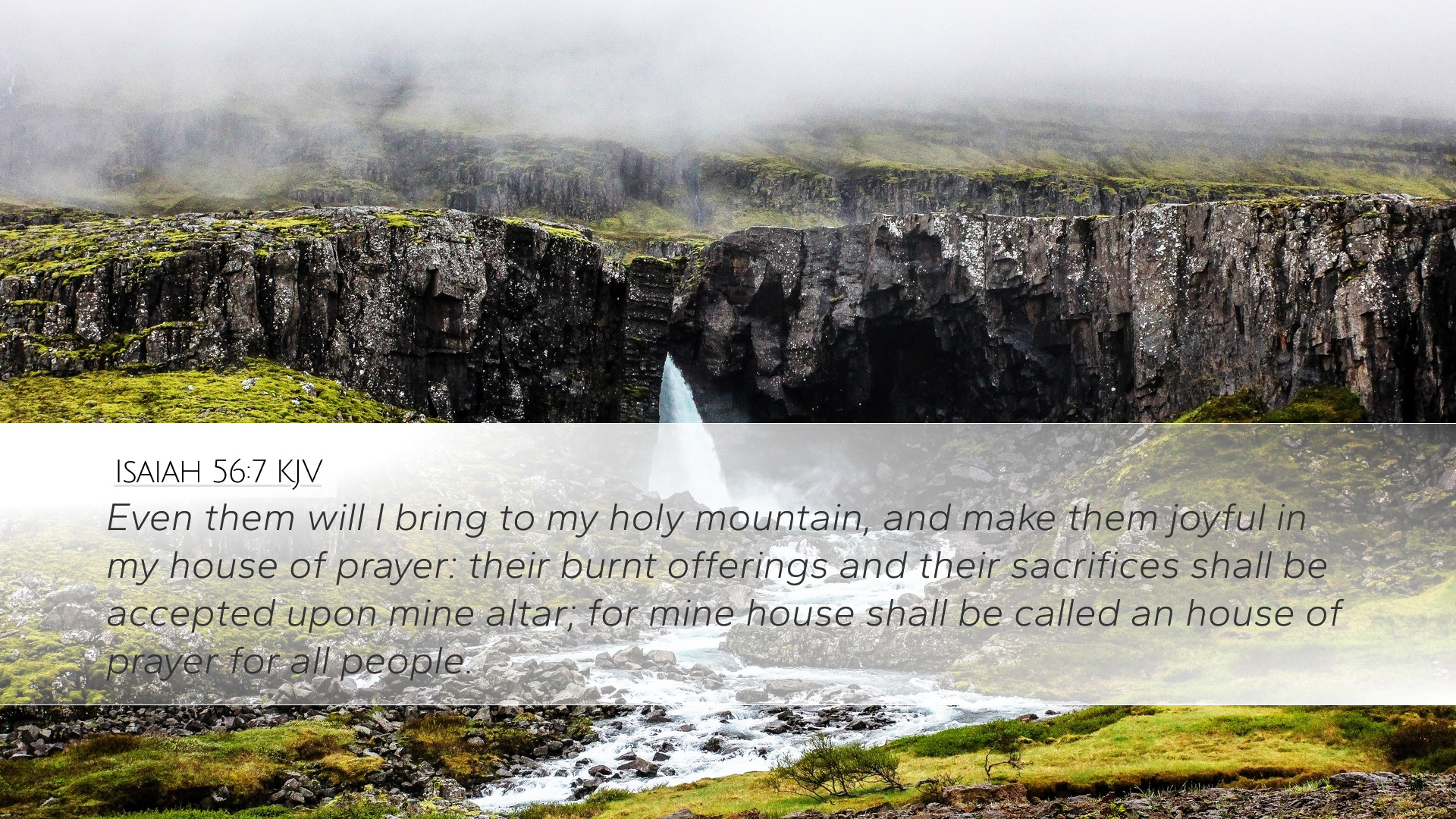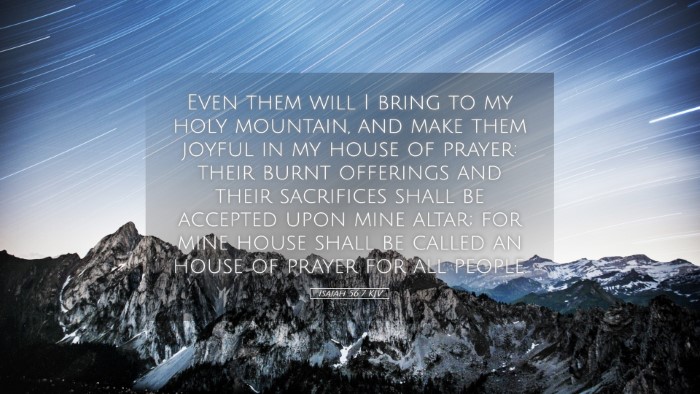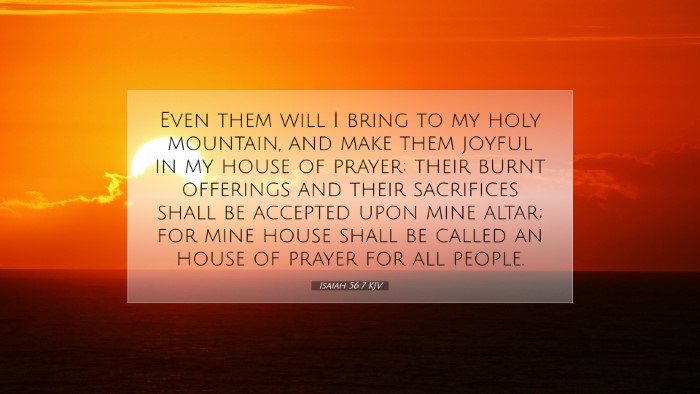Commentary on Isaiah 56:7
Isaiah 56:7 states, "Even them I will bring to my holy mountain, and make them joyful in my house of prayer: their burnt offerings and their sacrifices shall be accepted upon mine altar; for mine house shall be called an house of prayer for all people." This verse encapsulates the profound inclusivity of God’s redemptive mission, extending beyond the confines of Israel to embrace all nations. Here, we explore this pivotal scripture through the insights of prominent public domain commentaries.
Theological Significance
This verse reveals God’s desire for a house of prayer that serves all people. The inclusion of the Gentiles signifies a turning point in God’s plan, demonstrating His openness to all who seek Him. Matthew Henry emphasizes that the invitation to God's house is a comprehensive one, extending not only to the Israelites but to all who are willing to turn to the Lord. This mirrors the New Testament revelation of the church as a community that transcends ethnic and cultural barriers.
Interpretation of 'Holy Mountain'
When Isaiah refers to God’s "holy mountain", it symbolizes a place of divine presence and worship. Albert Barnes elaborates on this by stating that the "mountain" here can often represent Zion, the place where God’s glory dwells. The imagery of elevation suggests spiritual ascent and the necessary reverence in approaching God. This mountain is not just a geographical location but a place where God Himself interacts with His creation.
Joyful Worship
This verse highlights a core aspect of worship—joy. Adam Clarke notes that “make them joyful in my house of prayer” implies that true worship is accompanied by an inner joy that comes from acknowledging God's grace and mercy. This invitation also encourages believers to find happiness and fulfillment in communal worship, suggesting that joy is a vital element of spiritual life.
Burnt Offerings and Sacrifices
The mention of 'burnt offerings and sacrifices' indicates the traditional forms of worship prescribed in the Mosaic Law. Matthew Henry asserts that these offerings represent devotion and acknowledgment of one's need for atonement. The acceptance of these offerings signifies God’s approval and fellowship with His people, a theme that resonates deeply with the concept of worship in both the Old and New Testaments.
A House of Prayer for All People
- Inclusivity in Worship: This phrase directly indicates the universal nature of worship that God desires. Albert Barnes insists that the church should reflect this inclusivity, welcoming all who come to seek God.
- Prayer as Central to Worship: Prayer is highlighted as the primary means of communion with God, illustrating that He desires a relationship with all humanity, irrespective of background, ethnicity, or status.
- Prophetic Fulfillment: The concept of a house of prayer culminates in Christ, who in the New Testament cleanses the temple and redefines worship as a matter of spirit and truth (John 4:24). This expands the understanding of God’s house being inclusive beyond ethnic lines.
Conclusion
Isaiah 56:7 serves as a powerful reminder of God's love and outreach to all humanity. The insights drawn from classic commentators like Matthew Henry, Albert Barnes, and Adam Clarke emphasize that the invitation to the "holy mountain" is open to everyone who seeks God sincerely. The joy found in worship and the acceptance of offerings highlight God's desire for genuine relationship with His creation. Pastors, theologians, and scholars are encouraged to explore these themes, recognizing their implications for both personal spirituality and communal worship. In our diverse world, this verse challenges us to embody the inclusivity and joy that define God’s true house of prayer.


